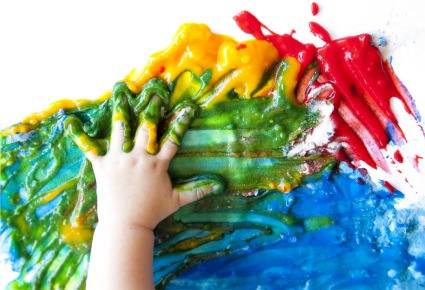How can flexible goals support you to support your child’s progress?
Any parents of young infants know that they cannot force their baby to grow any faster than they are naturally capable of. They know with consistent loving support, in time their baby will develop into the healthy child they’re meant to be. It takes a healthy baby 3 to 6 months to discover rolling and 6 to 9 months to figure out how to sit on their own. These movement processes require a lot of apprenticeship!
Comparing these milestones to the development of your child would seem so unfair. Understanding each child with special needs has their own unique set of challenges and thus their own specific path of development hopefully will help to take some pressure off you as parents with regard to meeting a defined set of goals.
When your child does something today that they couldn’t do yesterday, however subtle it may be, it is a call for celebration. (Remember ‘Celebrate Enthusiasm’ from August’s issue?) It’s one step forward that will support your child to accomplish more and more. All these tiny successes will lead your child with special challenges further along their individual path towards independence. And, ironically, It speeds it up by letting go and not pushing too hard. Everyone’s more relaxed and open.
When you allow yourself to hold your goals loosely, it takes the pressure off you as a parent along with your child to have to perform to the standards that have been set. And who are these standards set for anyway?
Practical Tools for You to Try
In order to have flexible goals, we need to allow room for ‘mistakes’ or ‘apparent failures’ to be made. ‘Mistakes’ and ‘apparent failures’ are the steps to success for your child.
Allowing mistakes. Do not make it right!
Learning to move with intention involves complex processes and countless numbers of so called ‘mistakes’ and seeming ‘failures’. When we observe these in a healthy developing child, we often find those bumps in the road ‘cute’. However, with a special needs child we are often pressed to help them to ‘get it right’. Your special needs child requires the same opportunity to make lots of mistakes and the richness of the information that this provides to their brains. This information is what will support your child to get it right in their own time.
Welcome mistakes when they happen!
It’s ok that your child missed their target this time around. Make it fun and help them do it again and again. Be present with your child’s emotions. What matters most is how the process makes your child feel. Happy? Your child is definitely going to practise again and again. Upset? You increase the likelihood that your child will check out the next time around.
Creating mistakes can be fun!
How can we increase the fun factor by ‘messing things up’? Practise missing the target with your child. Instead of teaching your child to stay balanced in sitting, allow your child to fall over gently (to their front and to their sides) to help your child figure out how they can catch themselves from falling over with their arms and hands. Put the shoe on the wrong foot and see if you can get your child’s attention. Put a spoon in your child’s hand with the spoon side in their palm and see what your child will do, or not. You get the idea!
When you allow yourself to hold your goals loosely and instead enjoy the process of ‘movement discoveries’ with your child, you’ll be able to better connect with your child and your child with you.
How better to learn than in a fun, safe and loving environment. I bet your child would want to do it again and again developing a rich repertoire of movement vocabularies while busily making ‘mistakes’!
QUESTIONS FOR YOU TO PONDER:
- When was the last time you felt that you failed?
- How did that make you feel?
- What did you learn from it?
- How did you keep going – or did you stop?
Now it’s up to you to engage yourself in this process.



